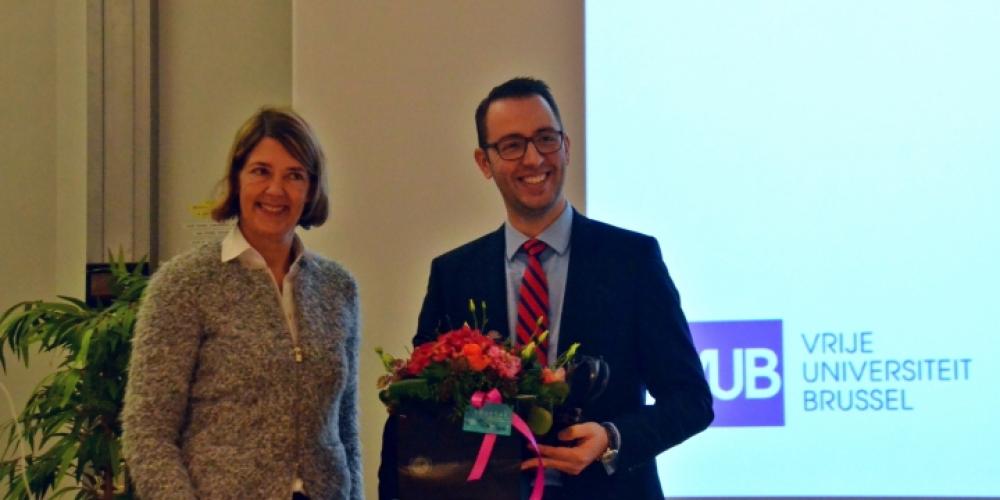
In 2010 Caluwaerts organised a series of experimental citizen forums with Dutch and French speaking Belgians whom he asked the simple yet controversial question ‘How do you see the future of Belgium?”. At the time the country was going through one of its most significant political crises of all time. The results defied all expectations: a profound analysis of the discussions showed that talking to members of the other language group lead to a mutual understanding, which in turn lead to respect. The preparedness to listen and alter opinions was even bigger in mixed language groups. It turned out that deep conflict don’t need to stand in the way of deep deliberation. From the follow-up research it appeared a confrontation with other opinions and members of another language group lead to an improved appreciation of ‘the other’. These results diametrically opposed leading studies in political science that deemed constructive dialogue impossible.
Supervisor Kris Deschouwer: “The results of the study are interesting and socially relevant.” Deschouwer laudes the doctorate of his pupil: “And the whole dissertation is written in a smooth, accessible and readable method. Whoever can combine such theoretical, methodological and stylistic qualities, delivers a piece of work that far exceeds mediocrity. For those reasons alone it is an exceptionally good dissertation.”
Building on his PhD research and the G1000, of which he was the organiser and methodologist, Caluwaerts now performs research into the role civilian initiatives can play in democratic innovation. Caluwaerts was part of an international research team that performed similar experiments in other deeply divided countries such as Colombia, Israël, Turkey and Northern Ireland. From a recently published book it appeared the Belgian results were comparable to the other cases.
In the United States Caluwaerts organised similar experiments on the controversial topic of climate change and he is currently setting up an experimental citizen forum in Iraq.
‘Ignace Vanderschueren’ award
On Friday January 13th the bi-annual ‘Ignace Vanderschueren’ Award ceremony was held at the Vrije Universiteit Brussel. The award, instigated by VUB, goes to the doctoral dissertation that distinguishes itself by contributing significantly to the evolution of scientific research.
It is awarded every two years by the research council to researchers from the Humanities, Fundamental, Natural & Applied Sciences and Biomedical Sciences. This year after 6 years it was the Humanities’ turn again. The jury looks for originality, innovation and focus. Aside from that the methodology needs to be outstanding and the impact of the study significant. Furthermore the research needs to be published in a prominent scientific journal.